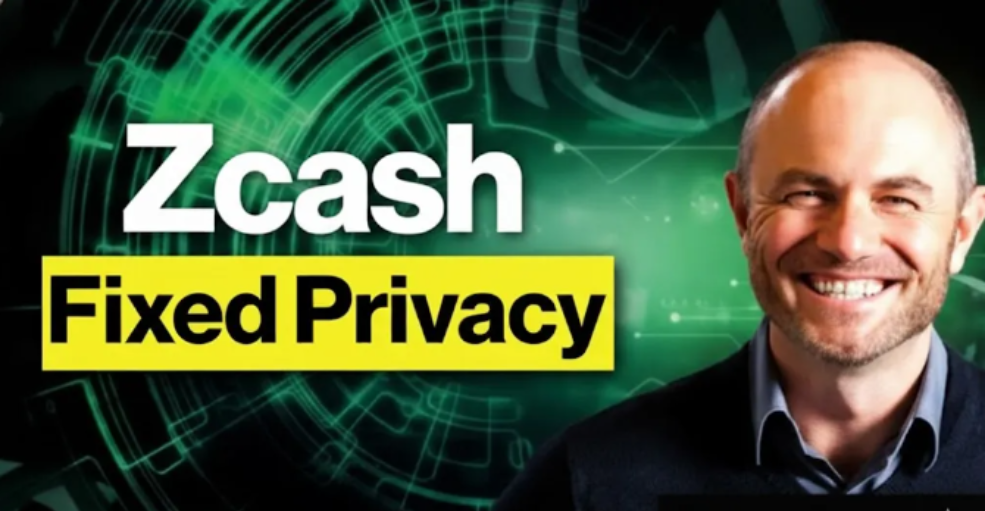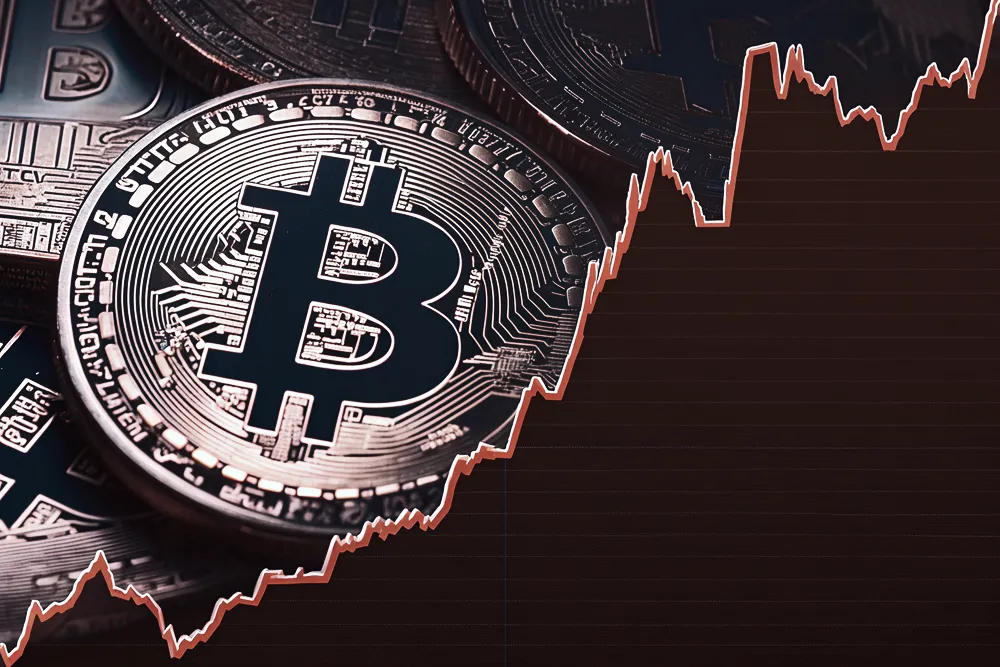The digital asset world is witnessing a "return of the king" in privacy protection. "Bitcoin is the insurance of fiat currency, and Zcash is the insurance of Bitcoin." This assertion by renowned Silicon Valley angel investor Naval Ravikant has recently resonated strongly in the cryptocurrency market.
In the past two months, Zcash ($ZEC) has surged from around $40 to a peak of $429, an increase of over 1000%, bringing the concept of privacy coins back into the market spotlight. This remarkable revival is the result of years of technical accumulation and user experience improvements by the Zcash team.

1. A New Narrative on Privacy: The Origins and Technical Foundations of Zcash
● Zcash was born in October 2016, directly forking from the Bitcoin codebase, inheriting many of Bitcoin's monetary principles: a fixed supply of 21 million, a predictable halving schedule, and a decentralized proof-of-work mechanism.
However, fundamentally different from Bitcoin, Zcash achieves transaction privacy protection through zk-SNARKs (Zero-Knowledge Succinct Non-Interactive Arguments of Knowledge) technology.
● Zcash CEO Josh Swihart explained in an interview: "When Satoshi Nakamoto launched Bitcoin, he researched zero-knowledge proofs and particularly wanted to add anonymity or higher privacy to Bitcoin, but he couldn't figure out how to implement it using zero-knowledge cryptography."
Zero-knowledge proof technology allows for the verification of transaction correctness without revealing any transaction details (sender, receiver, amount).
2. Three Major Upgrades: From Proof of Concept to Large-Scale Application
Zcash's privacy technology has undergone three significant evolutions, gradually moving from theory to practicality:
● Sprout (2016): As the initial version, it proved that privacy based on zk-SNARKs is feasible on public blockchains, but it had high computational demands and required a trusted setup.
● Sapling (2018): Reduced proof time and memory requirements by over 100 times, making private transactions feasible on everyday devices.
● Orchard (2022): The latest upgrade achieved trustless privacy without any new trusted setup, while improving efficiency and supporting batch transactions.
The development history of Zcash is generally summarized in the industry as: Sprout proved the possibility of private funds, Sapling made it usable, and Orchard made it trustless and scalable.
3. Market Catalysts: Why Did Zcash Explode Now?
Zcash's recent explosion is not coincidental but the result of multiple factors working together.
● Launch of the Zashi Wallet: The official Zcash wallet developed by ECC significantly improved user experience. Swihart stated: "After the launch of Zashi, you can see the total number of shielded transactions and the amount of ZEC in the shielded pool growing exponentially."
Data shows that the Zashi wallet has achieved 12,100 unique iOS installations and 4,830 Android installations, with high user ratings.
● Interoperability Breakthrough: Zcash solved long-standing interoperability issues for users through integration with NEAR Intents. Swihart revealed: "In 8 weeks, we drove about $100 million in fund flows through near intents, averaging $2.2 million per day."
● Dynamic Supply Changes: Zcash completed its second halving in November 2024, significantly reducing the issuance of new coins, causing supply-demand pressure.
● Awakening of Privacy Awareness: In the context of global governments strengthening financial surveillance, Zcash provides a "form of encrypted, unmonitorable currency" for privacy-conscious users.
4. Zcash vs. Monero: A Clash of Two Privacy Philosophies
In the realm of privacy coins, Zcash and Monero (XMR) represent two different technical routes and philosophical ideas.
● Zcash uses zk-SNARKs, where privacy is optional, allowing users to choose transparent transactions or complete confidentiality based on their needs.
● Monero, on the other hand, uses ring signatures and stealth addresses, providing privacy by default in every transaction, but the privacy is probabilistic.
Both methods have their pros and cons: Zcash's optional privacy is more suitable for compliance needs, while Monero's default privacy offers stronger anonymity guarantees but lacks selective disclosure features.
5. Ecosystem: Developer Activity and Cross-Chain Interoperability
● The Zcash ecosystem has recently shown explosive growth. Swihart introduced: "There are now multiple core development organizations in the Zcash ecosystem. It wasn't like this before, but now we have the Zcash Foundation, Shielded Labs, and Zuko's team."
● In terms of interoperability, Zcash is establishing connections with multiple blockchains: "Someone is developing an Avalanche bridge, and I expect it to go live soon. There is a wrapped token on Solana."
● The importance of this cross-chain collaboration lies in the fact that once interoperability is achieved, it "unlocks various paralyzed things," enabling the Zcash ecosystem to achieve exponential growth.
6. Regulatory Challenges: Walking a Tightrope Between Compliance and Innovation
● Privacy coins have always faced severe regulatory challenges. Swihart admitted: "It's really difficult. We write code, release code, and in the U.S., that's protected free speech."
● To address regulatory concerns, the Zcash team actively communicates with regulatory agencies: "I spent a lot of time traveling back and forth to Washington, Tokyo, and Singapore, meeting with regulators."
It is worth noting that Zcash's optional privacy mode actually leaves room for compliance. Users can share viewing keys with accountants or regulatory agencies for audits or compliance checks. This feature allows Zcash to maintain privacy protection while adhering to regulations.
7. Future Outlook: From Technical Upgrades to Ultimate Vision
Zcash's future development roadmap is clear and ambitious.
● Crosslink Upgrade: A mixed proof-of-stake layer will be introduced on top of the proof-of-work foundation, allowing ZEC holders to earn rewards through staking, enhancing network throughput and security.
● Tachyon Project: Aims to significantly improve the scalability of Zcash's shielded protocol by eliminating performance bottlenecks through techniques like proof-carrying data, achieving "planetary-scale private payments."
● Swihart envisions the future: "In my view, it is a better Bitcoin. And Bitcoin has already been captured by fintech. That will be the battlefield: you either choose fintech coins or freedom coins. The goal is to become that option for everyone in the world."
The revival of Zcash is not merely a capital speculation but a natural result of its technological maturity and alignment with market demand. The $100 million fund flow in 8 weeks is not the end, but a starting point.
As digital surveillance becomes ubiquitous, financial privacy shifts from a choice to a necessity, and Zcash's shielded addresses become like "Swiss banks" of the digital age, only they are not in the Alps but in everyone's pocket.
Join our community to discuss and grow stronger together!
Official Telegram community: https://t.me/aicoincn
AiCoin Chinese Twitter: https://x.com/AiCoinzh
OKX benefits group: https://aicoin.com/link/chat?cid=l61eM4owQ
Binance benefits group: https://aicoin.com/link/chat?cid=ynr7d1P6Z
免责声明:本文章仅代表作者个人观点,不代表本平台的立场和观点。本文章仅供信息分享,不构成对任何人的任何投资建议。用户与作者之间的任何争议,与本平台无关。如网页中刊载的文章或图片涉及侵权,请提供相关的权利证明和身份证明发送邮件到support@aicoin.com,本平台相关工作人员将会进行核查。




